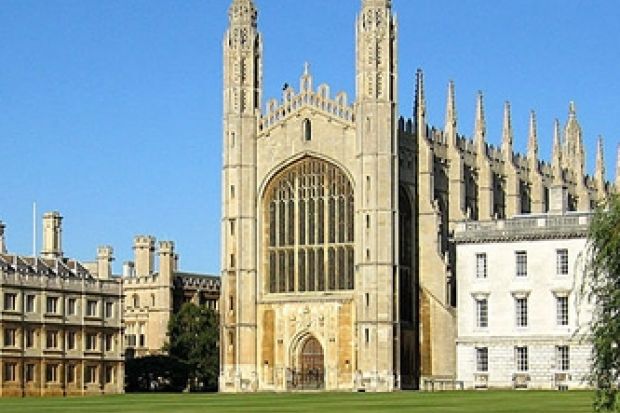The recently renamed University of West London, formerly Thames Valley University, polled some of the best improvements – with 76 per cent saying they were content with their course, a rise of 9 percentage points on 2010.
London Metropolitan University also made gains, with satisfaction ratings rising from 67 per cent to 72 per cent, while last year’s bottom-ranked institution, the University of the Arts London, enjoyed a seven point rise to 69 per cent.
However, the improvements were not enough to lift the universities from the bottom part of the table, which was topped by the University of Cambridge (94 per cent), once small specialists had been exluded.
Cambridge was followed by the University of Oxford, University of St Andrews, Open University, St Mary’s University College in Belfast, and the private University of Buckingham, which took top spot last year. All scored 93 per cent.
Brunel University was the biggest climber, rising from 118th to 40th in the satisfaction ranking after its score increased 10 percentage points to 85 per cent.
Some universities saw their satisfaction ratings fall, with Bournemouth University seeing its approval ratings drop five points to 71 per cent.
Its south-coast neighbour Southampton Solent University registered a 72 per cent satisfaction score, down by 3 percentage points since last year.
Malcolm Gillies, vice-chancellor of London Met, said he was “delighted” with his institution’s improved score, albeit from a “relatively low base”.
“An increase [of five percentage points] in one year is one of the largest in the sector and gives us heart that the many aspects of change currently being undertaken are appreciated by our students,” he said.
“However, this increase at London Met comes from a relatively low base. The NSS tells us that while our students appreciate the quality of their teaching, they do want more course advice and support, more rapid and helpful feedback, and better communications all round.”
Wendy Piatt, director general of the Russell Group of research-intensive universities, welcomed overall satisfaction levels of 87 per cent across the group, compared to a sector average of 83 per cent.
“The cuts to teaching funding over the past year means that maintaining excellence will be increasingly challenging for universities,” she said.
“We have already made significant strategic savings, but the new fee income for English universities from autumn 2012 will be all the more crucial as we work to provide our students with the first-rate teaching experience they deserve.”
Overall, satisfaction in UK rose from 82 per cent in 2010 to 83 per cent this year.
University teaching scored 84 per cent satisfaction, up by 1 point on 2010, while students were least happy with assessment and feedback (68 per cent, up from 66 per cent).
Around 265,000 final-year students responded to the NSS, an increase of 13,000 participants and the response rate of 65 per cent.
However, Liam Burns, president of National Union of Students, noted the results showed “only very slight increases in overall student satisfaction”.
He added: “At a time of severe funding pressures, it is more important than ever that students are involved in shaping their curriculum to ensure progress is made in the future
“After years of work by students and students' unions it's good to see some modest improvement in assessment and feedback scores.”
Sir Alan Langlands, chief executive of the Higher Education Funding Council for England, which publishes the survey, believed the NSS was now more crucial than ever.
“With changes in financing of higher education, we can be sure the NSS will only grow in importance,” Sir Alan said.
“The results also provide crucial information for universities and colleges to help them improve the learning and teaching experiences of their students.”
David Willetts, universities minister, said the satisfaction scores were “high on average”.
Register to continue
Why register?
- Registration is free and only takes a moment
- Once registered, you can read 3 articles a month
- Sign up for our newsletter
Subscribe
Or subscribe for unlimited access to:
- Unlimited access to news, views, insights & reviews
- Digital editions
- Digital access to THE’s university and college rankings analysis
Already registered or a current subscriber? Login
